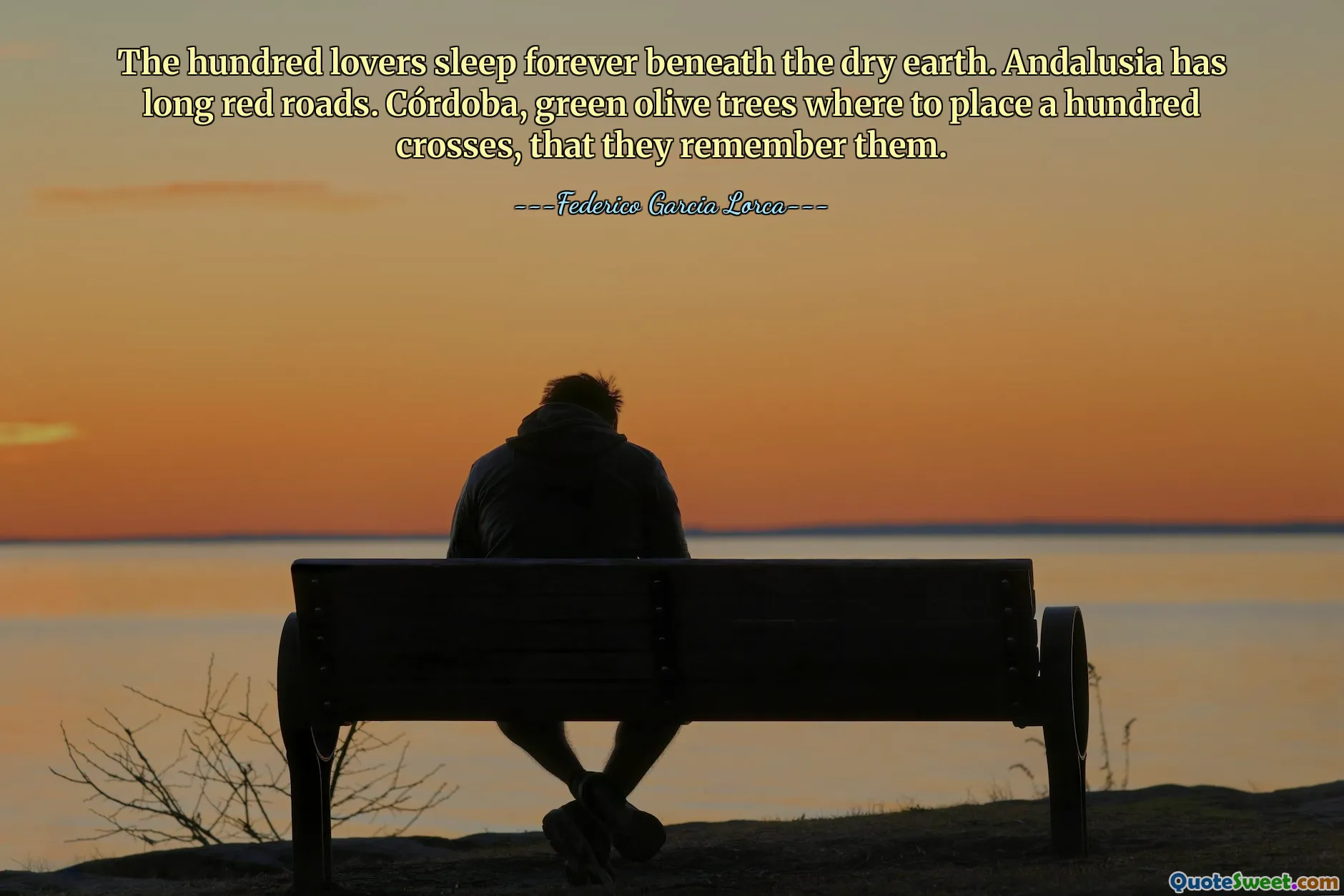
The hundred lovers sleep forever beneath the dry earth. Andalusia has long red roads. Córdoba, green olive trees where to place a hundred crosses, that they remember them.
This evocative quote by Federico García Lorca beautifully captures the profound connection between land, memory, and history. The imagery of 'the hundred lovers' sleeping forever beneath the dry earth suggests a sense of eternal rest and possibly sacrifice, emphasizing the enduring legacy of those who have loved and perhaps suffered in this land. The description of Andalusia with 'long red roads' creates a vivid picture of the region's hallmark landscapes—arid, passionate, and deeply rooted in history. Córdoba, with its lush green olive groves, stands as a symbol of peace, fertility, and the resilience of nature amidst the dry terrain. The 'hundred crosses' symbolize remembrance—marking the site of those lost or fallen, serving as a poignant reminder of their stories. Lorca’s words evoke a deep sense of cultural memory, honoring those who have contributed to the region’s rich tapestry. The landscape becomes a metaphor for collective memory, where the earth holds stories of love, struggle, and history. Through this imagery, Lorca connects personal and collective histories, emphasizing the importance of remembrance and the enduring spirit of Andalucía. It speaks to the spiritual landscape as much as the physical, urging us to acknowledge the sacrifices and stories embedded in the land, ensuring they are remembered and honored. This poetic reflection invites contemplation about the bonds between land, identity, and memory—an eternal dialogue that Lorca masterfully captures through his vivid, emotional language.









